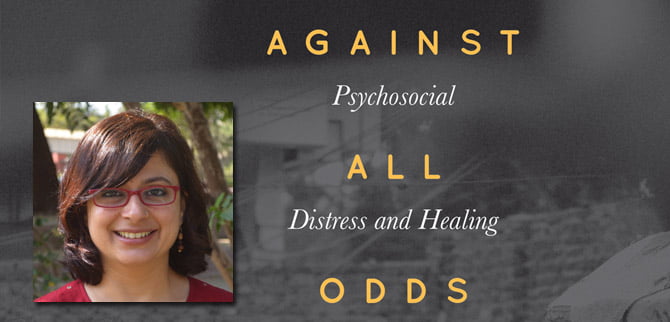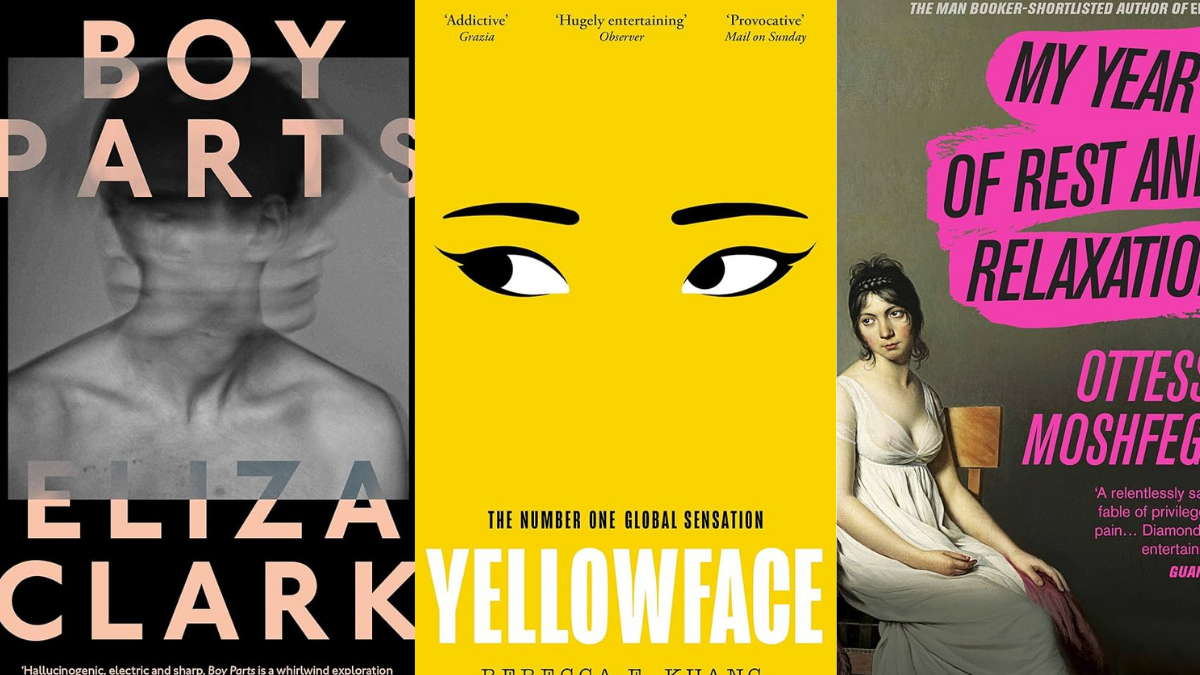Posted by Namrata
It is 2019, high time that we consider talking about mental illness without any qualms. Since time immemorial, women in Indian society have been taught to consider themselves as an invisible entity with their health both physical and mental being of almost zero importance. This belief had led to women developing critical ailments which remain undetected for years due to negligence and when discovered are at a stage where little can be done about them. Psychological, emotional and financial conditions tend to play an important role in the wellbeing of an individual. Most of the times, socio-economic conditions also lead to mental health issues.
Against All Odds – Psychosocial Distress And Healing Among Women (2018)
Author: Mahima Nayar
Publisher: SAGE Publications
Genre: Non-fiction
In the preface, Nayar notes,“In the twenty first century where change is occurring at an unprecedented pace, the everyday lives of women are often considered a ‘small detail’ in the larger historical landscape. However the distress they face in their everyday lives reveals the link between macro changes and their impact on the day-to-day lives of people. This book attempts to explore the everyday meaning of distress in order to understand these larger changes.”
It is interesting to note how crucial a role gender disparity plays in the mental health of women.
Against all odds: Psychosocial Distress and Healing among Women by Mahima Nayar is a book that tries to demystify the common beliefs regarding madness, mental health and mental illness. Through an array of interviews and case studies presented at length in the book, the author goes on to conclude that the treatment needed is for the issues more than the women who are suffering because of them. Because one woman will heal and move on in life but by then the issue will have affected someone else.
It is interesting to note how crucial a role gender disparity plays in the mental health of women. This constant suppression gives birth to a lot of issues like lack of confidence, inferiority complex, lack of decision-making ability etc which are the beginning of bigger issues like anxiety disorder, depression etc. Women who are often ignored at home end up talking very loudly when angered. This is an extremely subconscious act which the doer might not notice but somewhere their mind has processed the need to be heard as the need to be loud. She notes, “Chesler argues that women’s behaviour is typically devalued, rejected and pathologized: ’women, by definition, are viewed as psychiatrically impaired – whether they accept or reject the female role- simply because they are women.”
Bringing together her close to two decades of experience of working with women and children the author narrates their ordeal with a poignancy that is unmatched. Heart wrenching stories of survivors of domestic violence and sexual assault make you see how the seeds of mental ailments are sown which gradually grow if they go unnoticed for a long time.
Care giver, maternal instincts, home maker are some of the roles that are allotted to women by default. Since birth they are domesticated to an extent that by the time they grow up, they believe that they have a back-end role, always, to ensure smooth functioning of domestic lives of family members and loved ones. Many times, women tend to pass on their fears, apprehensions, beliefs, superstitions and mental ailments to their children unknowingly never realising the extent of damage they are doing. Even as per child-psychology during pregnancy a mother tends to pass on her likes and dislikes not limited to food preferences to the child.
It comes as no surprise that women undergo abuse in various forms in order to maintain harmony in their relationships
The women who share their life stories in the book are real, that fact is unnerving. That someone out there is going through something so horrid, struggling to make two ends meet and live a decent life. While one’s life is a struggle for self-respect and the other battles to create an identity for her own self. One woman is trying hard to make two ends meet after her husband has become an addict while another is dreaming of having her own computer centre but has no means to do so. All the narratives have some common themes underlying—that of helplessness, abandonment, discrimination, challenges of surviving in a male dominated society and disparity.
It comes as no surprise that women undergo abuse in various forms in order to maintain harmony in their relationships, compromise being the key word here. Forbidden desires, suppressed anger and emotions, unexpressed fears, untold secrets and unrealised dreams—a heavy concoction of all of this is enough to make any sane person go mad while trying to exist. Interestingly enough the signs of mental ailment or madness are assumed to be black magic, jinn, bhoot and other such superstitions pushing those women to seek help from pandits, maulvis and tantriks rather than qualified doctors who can help them address their ailments properly. The rate at which they rely on sorcery and black magic to find answers to most of the problems of their life is alarming.
From startling details to moving case studies, this book is an eye-opener in every way. Madness might be a playful jibe at someone with different names like pagli, bawli etc but it has serious repercussions on mental health and that needs to be addressed at the earliest. It is important to create awareness about it amongst the strata of the society and make women work towards their health. It is imperative to involve these women in the process for they not only understand the ground reality better but also can communicate with their fellow mates in a convincing manner. Newer models which include the changing needs and intersections between the cultural, social and economic realities faced by women are the need of the hour. The solutions need to be effective and realistic, taking into consideration all the real time issues and psychosocial distress faced by women.
Also read: Book Review: Purdah To Piccadilly By Zarina Bhatty
Modernisation and development come along with its own side effects and that needs to be not only understood but also worked upon with a sense of urgency. Allowing it to impact all and sundry is not good in the long run as it leads to utter chaos.
Namrata is a lost wanderer who loves travelling the length and breadth of the world. She lives amidst sepia-toned walls, fuchsia curtains, fairy lights and shelves full of books. When not buried between the pages of a book, she loves blowing soap bubbles. A published author she enjoys capturing the magic of life in her words and is always in pursuit of a new country and a new story. You can follow her on Facebook, Instagram, Twitter and her blog.
Featured Image Source: Live Encounters
About the author(s)
Guest Writers are writers who occasionally write on FII.




